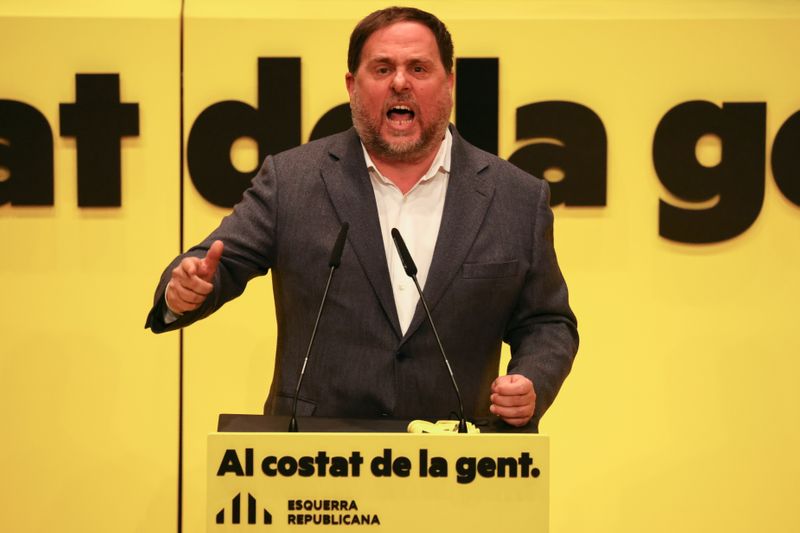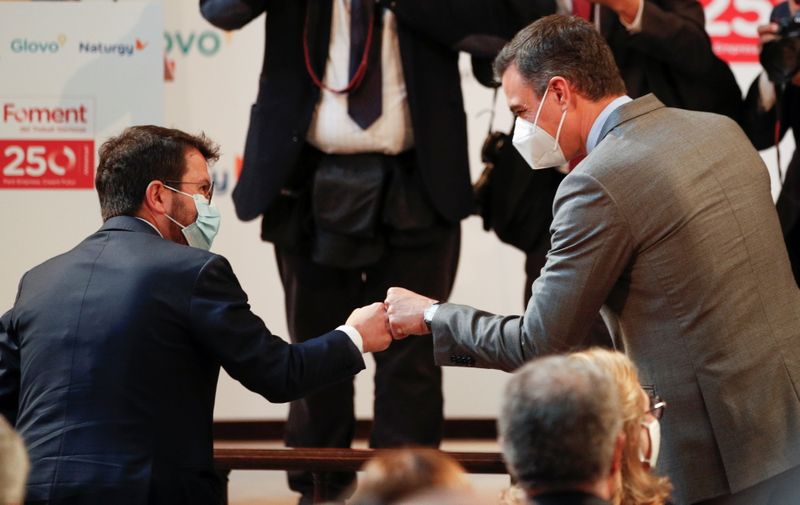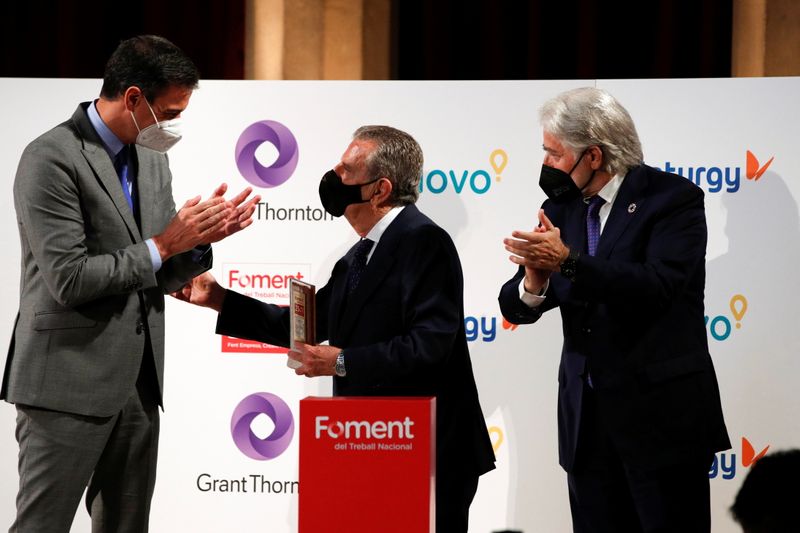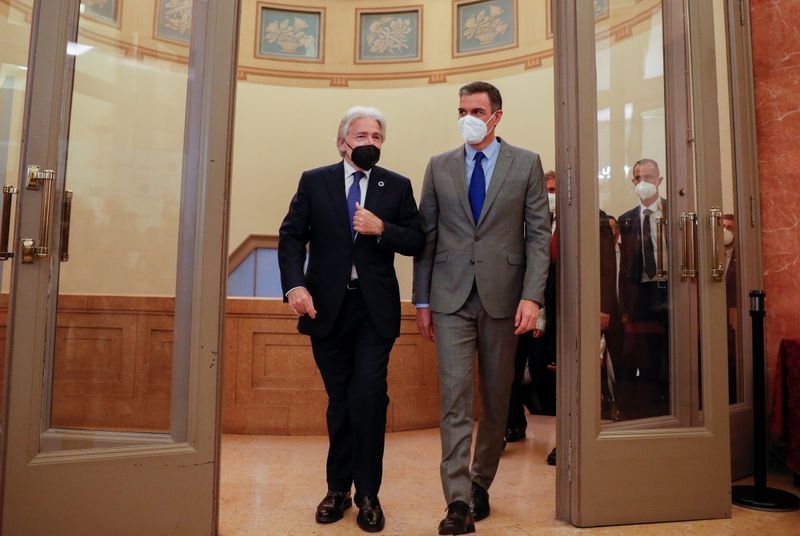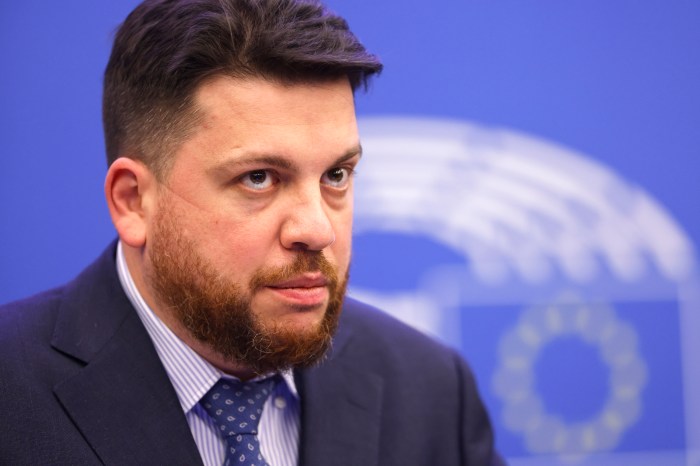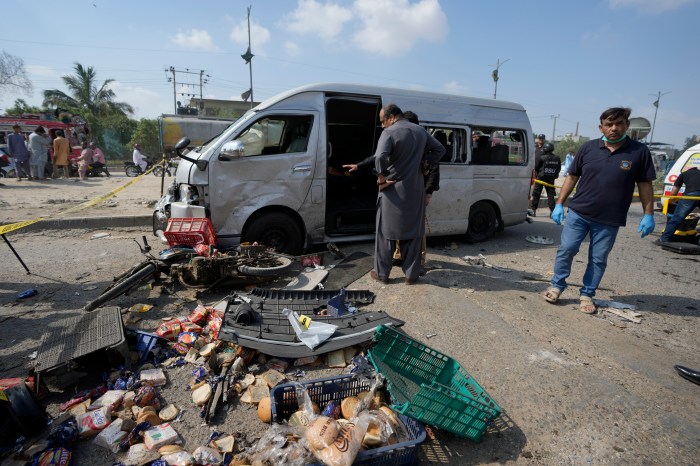BARCELONA (Reuters) – The most prominent of Catalonia’s jailed separatist leaders on Monday said his camp had made mistakes and needed to adapt its strategy, a move that could help the Spanish government’s efforts to ease tensions over the region.
Oriol Junqueras is in prison over his role in organising an unauthorised referendum in 2017 and for the short-lived declaration of independence that followed it.
The independence bid was Spain’s biggest political crisis in decades, sending shockwaves that are still felt and leaving political leaders struggling to deal with the challenge of what to do with the region.
Just under half of Catalonia’s population wants independence, according to opinion polls.
Junqueras made clear he still favours independence but said it should be sought differently.
“We have looked in depth at our strengths and weaknesses, the mistakes and the successes, to learn lessons,” he wrote in an op-ed published by La Sexta TV and newspaper ARA.
“We (separatists) must be aware that our response (the unauthorised independence referendum) was not understood as fully legitimate by a part of society, including in Catalonia,” he said. “We must adapt our strategies.”
One way to do that is through authorised referendums, he said.
While Junqueras and the separatist camp had so far insisted they wanted nothing short of a full amnesty for the 2017 events, rejecting the idea of pardons that others had floated, he struck a different tone on Monday.
“There are gestures that can alleviate the conflict, ease the pain of repression and the suffering of Catalan society,” Junqueras wrote in the op-ed, in a reference to recent comments by Prime Minister Pedro Sanchez.
Sanchez has suggested in recent weeks that he was preparing to pardon the 12 separatist leaders, saying that would help dialogue and concord.
But, even with Junqueras’ nod in favour of a pardon, there are still many challenges.
Sanchez’s comments triggered criticism from right-wing parties, who will protest against the pardons in Madrid on Sunday. The Supreme Court also said it was against it – a view shared by 61% of Spaniards according to an opinion poll published by El Mundo newspaper.
An amnesty is more wide-reaching than a pardon, and would mean absolution of any offence for all those involved in the referendum bid, which could be claimed as a moral victory by the separatist camp.
A pardon, on the other side, could cover only part of the separatist leaders’ acts, which would not be wiped from criminal records. It could be reversed and they would most likely still be barred from holding office.
(Reporting by Joan Faus and Ingrid Melander, additional reporting by Nathan Allen, Editing by Angus MacSwan)

